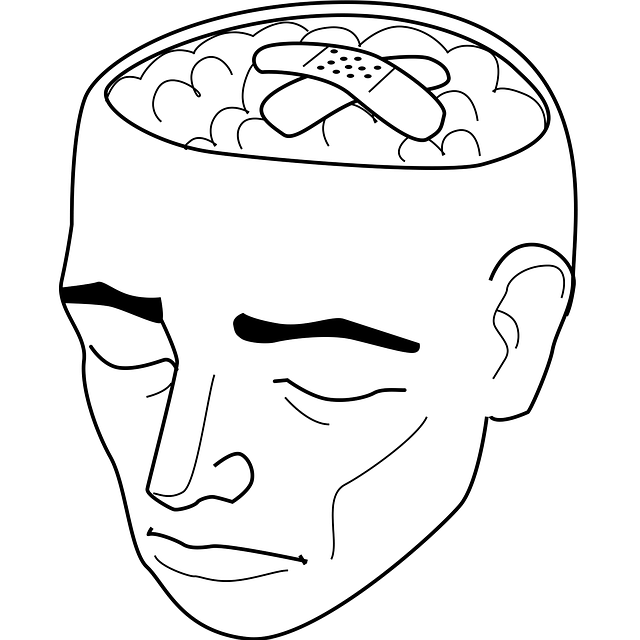Young adults face unique pressures from academics, careers, and social media, leading to mental health issues like anxiety, depression, and burnout. Effective public awareness campaigns promoting mental wellness must understand these challenges and engage young adults in conversations about emotional healing. Mindfulness practices, integrated into community outreach programs through Stress Management Workshops and Resilience Building exercises, prevent burnout and foster resilience. These initiatives empower individuals to prioritize self-care and access therapy, creating a healthier environment for emotional recovery. Evaluating campaign impact using both quantitative (participation rates, social media engagement) and qualitative methods (surveys, focus groups) shows improved mental health awareness and behavior changes among young adults.
Public awareness campaigns play a pivotal role in addressing mental health issues among young adults. This article explores strategies for developing impactful initiatives, focusing on understanding unique mental health needs and designing effective mindfulness programs. We delve into key considerations for implementation and measurement of success, emphasizing the importance of therapy for young adults through mindfulness techniques. By examining these aspects, we aim to enhance the reach and effectiveness of public awareness campaigns aimed at this demographic.
- Understanding Young Adults' Mental Health Needs
- Designing Effective Mindfulness Campaigns
- Implementing and Measuring Success of Public Awareness Initiatives
Understanding Young Adults' Mental Health Needs

Young adults face unique challenges that can significantly impact their mental health and well-being. With increasing academic pressures, career expectations, and social media influence, many young individuals struggle with issues like anxiety, depression, and burnout. Understanding these pressures is crucial for developing effective public awareness campaigns aimed at promoting mental wellness. By recognizing the growing need for therapy among this demographic, initiatives can be tailored to engage young adults in meaningful conversations about their emotional healing processes.
Mindfulness practices have emerged as a powerful tool in addressing these concerns. Incorporating mindfulness techniques within community outreach program implementations can help prevent burnout and promote resilience. Public awareness campaigns that emphasize self-care and provide accessible resources for therapy can empower young adults to prioritize their mental health, fostering a healthier and more supportive environment for emotional healing processes.
Designing Effective Mindfulness Campaigns

Public awareness campaigns about mindfulness have gained significant traction in recent years, especially with the focus on mental health among young adults. Effective mindfulness initiatives aim to educate and empower individuals to navigate their daily lives with heightened self-awareness and emotional regulation. By incorporating Mind Over Matter principles, these campaigns can help young people develop resilience and effective stress management strategies.
Organized Stress Management Workshops play a crucial role in fostering mindfulness practices within communities. Through interactive sessions, participants learn valuable techniques to manage stress, anxiety, and even depression. Resilience Building exercises, often incorporated into these workshops, teach individuals how to bounce back from challenges and setbacks, promoting overall well-being. Tailoring such initiatives to the specific needs of young adults ensures relevance and encourages the adoption of healthy mindfulness habits.
Implementing and Measuring Success of Public Awareness Initiatives

The success of public awareness initiatives, particularly those focused on mental health topics like therapy for young adults and mindfulness, can be measured through a combination of quantitative and qualitative methods. Tracking key metrics such as participation rates, social media engagement, and changes in self-reported behaviors provides a clear picture of the campaign’s impact. For instance, evaluating the number of individuals who seek therapy or adopt mindfulness practices after exposure to these campaigns can demonstrate their effectiveness.
Moreover, measuring success goes beyond numbers. Qualitative feedback through surveys, focus groups, and interviews can reveal profound shifts in public perception, including mental illness stigma reduction efforts and improvements in self-esteem. Effective communication strategies, tailored to different audiences, play a crucial role in these changes. By understanding how people interpret and respond to the messages, campaign organizers can continually refine their approach, ensuring maximum positive impact.
Public awareness campaigns play a pivotal role in addressing mental health issues among young adults by promoting accessible therapy options, such as mindfulness. By understanding their unique needs and designing targeted initiatives, we can foster a culture of open dialogue and well-being. Effective campaigns, focused on mindfulness practices, offer a promising approach to enhance overall mental resilience. Continuous evaluation and adaptation are essential to ensure the success of these public awareness initiatives, ultimately leading to better support systems for young adults seeking therapy.














